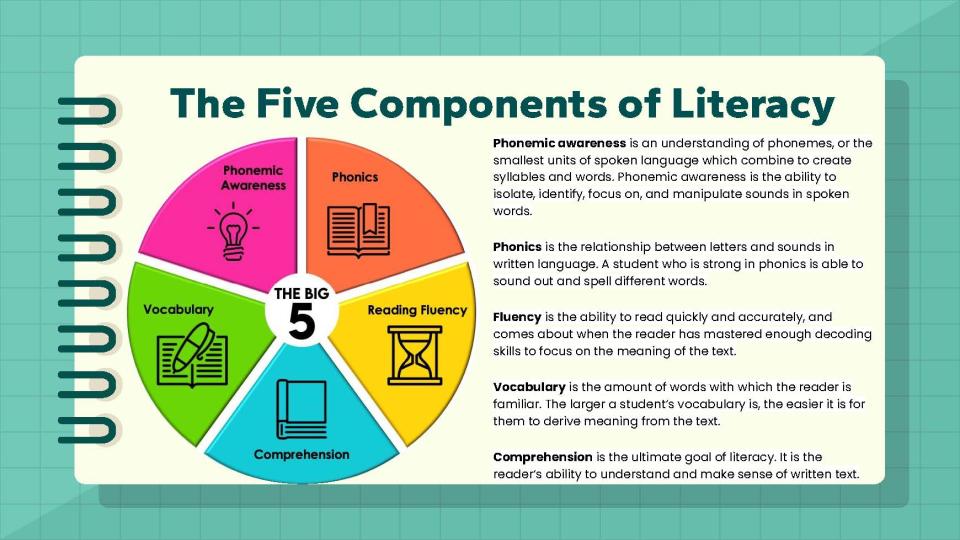Could Reading Recovery be banned in Kentucky schools? These politicians hope so
Following the lead of 10 other states, Kentucky lawmakers are seeking to further change how children learn to read, proposing a law that would ban a form of instruction associated with Reading Recovery.
House Bill 612 would ban teachers from using a method known as three-cueing − which guides children to use clues like pictures to figure out a word rather than sounding it out − and stop teacher prep programs from using it. The House Education Committee unanimously passed the bill Tuesday.
The move is another step toward removing balanced literacy instruction, a method that numerous studies have said is harmful to struggling readers. It teaches students to memorize or guess at words, while the structured literacy method teaches them to sound out letters to decode words.
The Kentucky legislature already passed a bill last year that prevents school districts from using balanced literacy as their primary instruction model next school year.
Students "are being given cues to guess at a word rather than learning the sounds. ... It is harmful to helping our students learn how to read successfully," said House Education Committee Chairman James Tipton, R-Taylorsville.
The bill, Tipton said, is not geared specifically to Reading Recovery, but "toward any vendor that might utilize this type of instruction."
Ohio is among the states that have banned three-cueing, and in the aftermath is being sued by the Reading Recovery Council of North America.
The intervention program, which has been taught to struggling first grade students in Kentucky since 1989, came under national scrutiny last year after a study suggested the program was ineffective in the long term and could actually be harmful to students’ reading abilities.
The study followed the test scores of Reading Recovery students and a similarly skilled control group into the third and fourth grades and found the program's students scored about a half-grade level below their peers who also had struggled with reading as first graders but did not receive the intervention.
“Even though those early impacts were positive and big, long-term impacts are actually negative, suggesting that the kids may have been better off if they had not gotten Reading Recovery at all,” Henry May, director of the Center for Research in Education and Social Policy at the University of Delaware, told the Courier Journal.

Many Kentucky districts stopped using the program after a Courier Journal Investigation that found the state has poured millions into Reading Recovery but failed to study whether the program leads to long-term reading success. Additionally, the Kentucky Department of Education no longer supports the use of it, but the University of Kentucky awarded $800,000 in grants to districts to expand their use of the program.
The Reading Recovery Center at UK received funding to put toward those grants from the state legislative budget, though Rep. Tipton along with Rep. Tina Bojanowski, D-Louisville, who co-sponsored the bill to ban three-cueing, said neither were aware that funding was still being provided and that it was a line item from several years ago.

It is unclear what will happen to UK's center if Tipton and Bojanowski's bill is passed. The center's funding from the legislature, according to UK spokesman Jay Blanton, will continue through June.
"UK is legislatively designated to act as the fiscal agent to distribute state-appropriated funds to districts," Blanton said.
Aside from impacting districts, many Kentucky universities will need to make changes in how they train future teachers about literacy and how kids learn to read, with the bill stating such programs should use evidence-based reading instruction.
The National Council on Teacher Quality released a report last summer analyzing whether 15 Kentucky higher ed institutions are instructing education majors on the five components of the Science of Reading. The report gave about half of them a "D" or "F" for failing to adequately cover them.
The intention of the bill, Tipton said, "is that the language is specific enough that it would prevent any (post)secondary institution from promoting (balanced literacy) instruction."
The other states that have banned three-cueing include Arkansas, Florida, Indiana Louisiana, North Carolina, Ohio, South Carolina, Texas, West Virginia and Wisconsin.
More: Kentucky schools invest more money in reading program experts say is harmful
Contact Krista Johnson at kjohnson3@gannett.com.
This article originally appeared on Louisville Courier Journal: House Bill 612 could ban Reading Recovery in Kentucky schools

